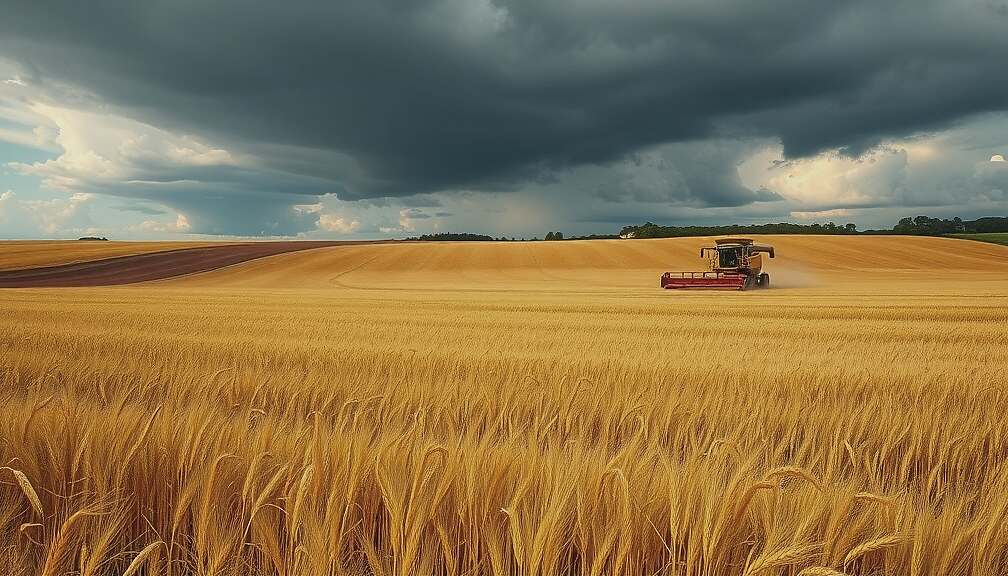Germany’s agricultural sector anticipates an average grain harvest for 2025, with a total expected yield of 43.5 million tonnes. This figure represents an improvement over the poorer results of the last two years – 39 million tonnes in 2024 – according to the German Farmers’ Association.
However, the association notes significant regional and locational variations in yields across most crops. Prolonged and often intense rainfall has also impacted the quality of harvests in many areas.
The harvest of winter wheat, the most important grain crop, is projected at 21.7 million tonnes, considerably higher than the 17.8 million tonnes recorded in 2024. This increase is attributed to both improved yields per hectare and a substantial expansion of the planted area. Despite the increased quantity, the quality of winter wheat has been negatively affected, with falling numbers reported as a direct result of persistent rainfall. Protein content is also showing a downward trend, particularly in certain regions.
Winter barley yields are also slightly improved year-on-year, reaching 9.3 million tonnes compared to 8.9 million tonnes in 2024. The winter rapeseed harvest is anticipated to reach 3.85 million tonnes, a marginal increase from the 3.6 million tonnes recorded previously.
Joachim Rukwied, President of the Farmers’ Association, described this year’s harvest as challenging. He cited the sustained rainfall during the harvest period as a significant impediment to operations, with combine harvesters frequently delayed. This prolonged exposure to the elements resulted in localized quality issues.
Rukwied also highlighted the impact of earlier spring drought in the northeast of the country on yields. While the overall harvest volume is closer to the average, he emphasized that it underscores the palpable consequences of climate change.
The association further points to increasing restrictions on plant protection as exacerbating challenges for arable farmers. Rukwied argued that the high pressure from pests and diseases this year demonstrates the necessity of adequately protecting crops and that effective plant protection is crucial for safe and healthy food production. He indicated that supply security is already at risk in several crops.
Harvests of other crops are mixed. Satisfactory yields have been reported for certain crops, such as early potatoes and cherries, while others have yielded average results. Autumn crops like maize, sugar beets and various vegetables benefited from the rainfall.
The Farmers’ Association also notes increasing import pressure, particularly in the fruit and vegetable sectors. Rising labor costs due to the minimum wage and restrictions on plant protection are further complicating matters for many farms. Significant problems are emerging in apple and lettuce production due to disease and pests and the spread of the brown marmorated stink bug is also posing challenges due to limited farmer action possibilities.












